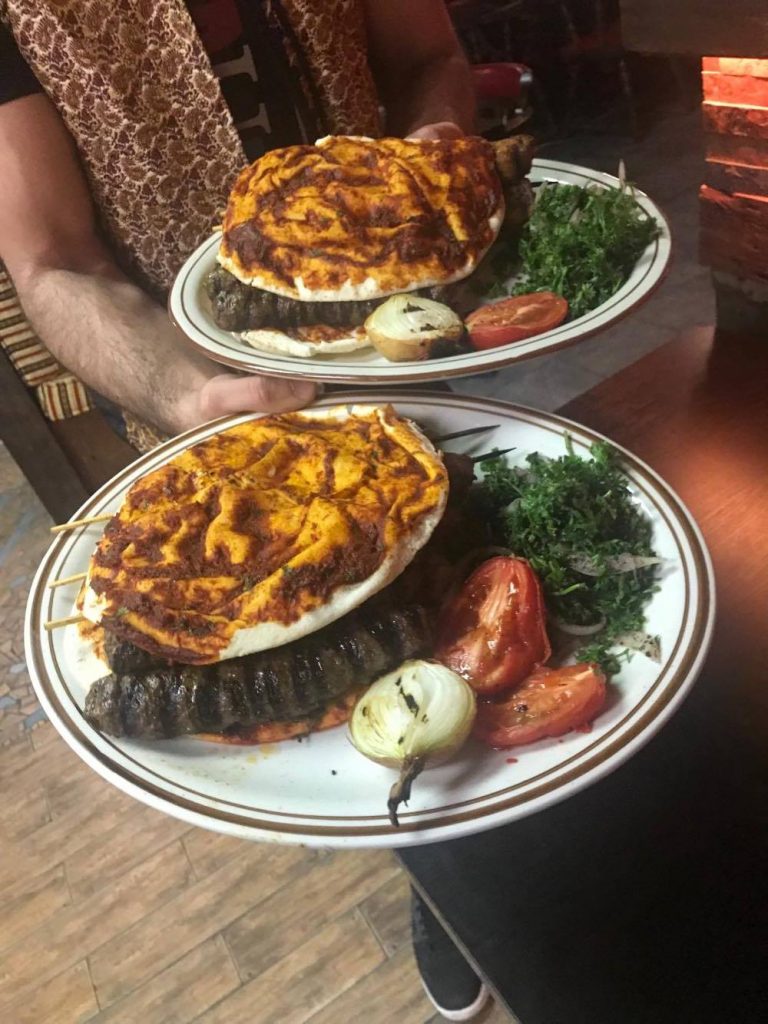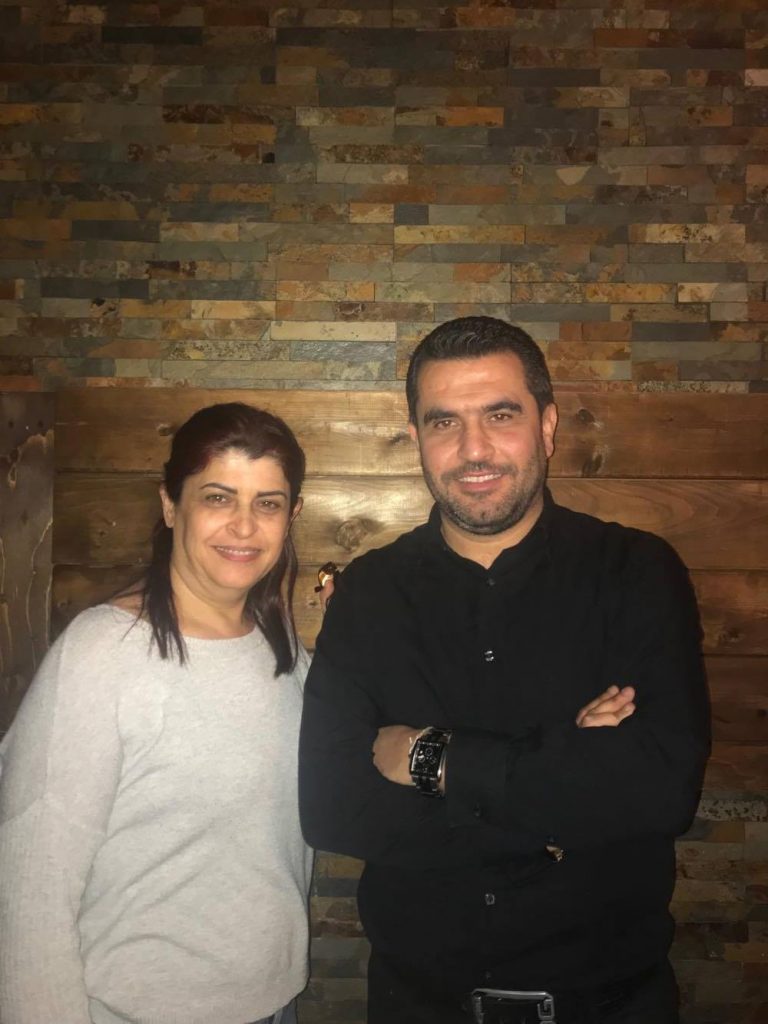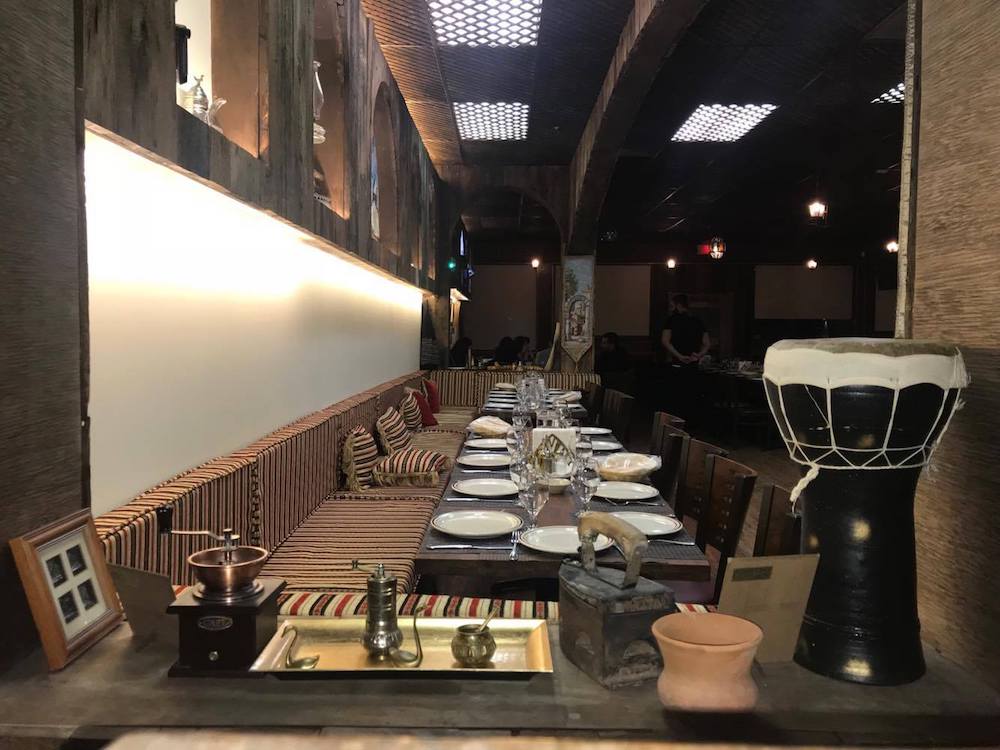A day in the life of Wafaa Maalouli, co-owner and cook at Bab Sharqi, a traditional Syrian restaurant
When you walk into the Bab Sharqi restaurant in the St-Laurent borough, there are round wooden arches on the wall. The centre arch has an oil painting of the actual Bab Sharqi, known as the Eastern Gate, which are the doors leading into the old city of Damascus in Syria.
The restaurant serves Syrian cuisine—everything from traditional appetizers, including stuffed grape leaves and kibbeh, to charcoal grilled meats with authentic seasoning. The restaurant celebrated its one-year anniversary in Montreal on Oct. 29.

However, Wafaa Maalouli, the cook and co-owner of the restaurant, has a story that goes back much further than one year. Before she moved to Canada in 2014, Maalouli was a popular caterer in Damascus. She cooked everything from ma’amoul, a traditional Syrian desert, to savory appetizers like sambousek, the Middle Eastern version of samosas. These foods were not only time consuming to make, but could only be done by hand.
Things became unstable when the war in Syria began in 2011. After her husband passed away, Maalouli decided to move to Canada to be reunited with her children, who were attending Montreal universities at the time. Initially, she wanted to open a catering business in Montreal for small parties, reunions or even students who lived on their own. But Samer Assis, her brother, had bigger plans for her. He encouraged her to pursue her dream of opening a restaurant.
Maalouli described it as surreal when Bab Sharqi first opened its doors. Many of the decorations around the restaurant were brought from Syria. A hand-carved metal ornament plate and an old rose water kettle hang on the wall. Next to them is an oud, a traditional Middle Eastern instrument similar to a guitar. There is also a picture frame displaying a collage made from the wrappers of Syrian snacks and bars.
“My brother and I wanted this restaurant to feel like home to Syrians, and to those who didn’t know Syria to feel like they were there” Maalouli said in Arabic. Even the fabric of the couches was imported from Aleppo, she added.
Here is how a day in her life goes:
Morning:
“It’s incredible how time flies fast here,” Maalouli said. “It didn’t use to feel like this in Syria.” She wakes up every morning at 6 a.m. The first thing she does is pour herself two cups of Arabic coffee. “It’s the only time I give to myself for the day,” she explained.
An hour later, Maalouli is the first to arrive at the restaurant. She looks at her journal and scans the orders she has due for the next few days. Then she decides what she needs to prepare that day. The cooking begins as soon as she writes up her list.
Maalouli always has double the responsibilities, juggling the restaurant and her catering orders. Her mornings are reserved for preparing the catering orders.
Afternoon:
“Once I put on my apron and start cooking, I’m on a roll and I spend my day in the kitchen,” Maalouli said. Assis comes in around 1 p.m. to help with the food deliveries. He also takes note of all the food that needs to be ordered and re-stocked.
Maalouli’s employees are all Syrian refugees with restaurant experience who have recently moved to Montreal. “It felt like a natural thing to hire Syrian refugees,” she said. “I felt it was my duty to help them.”
Every Tuesday, Maalouli stocks up on cold food, like her famous tabbouleh salad and her tasty hummus. Every tabbouleh batch is made with fresh ingredients, from the tomatoes to the parsley to the mint. The oil and bulgur used in her recipes are imported from Syria.
Evening:

In the evening, customers begin to fill up the restaurant, and the rush begins. “While it may look like a party, I know that everyone in the kitchen is running around to get everything ready,” said one of the waiters, Bahaa Alicham, in Arabic. He explained that not a single meal is served without Maalouli checking to make sure it’s perfect.
“Being part of this has made me feel like I am part of a family,” Alicham added. “When I see her too frustrated or stressed about an order, I’m there for her. I tell her to take a break for a second.”
Throughout the evening, while people are enjoying their dinner, Assis swings by the tables to make sure everything is to the customers’ liking. Maalouli said she always tries to leave the kitchen to greet customers too. Knowing that everyone is enjoying her food, whether they are Middle Eastern or Canadian, it’s her favourite part of the day.
Although she has a chef in charge of the grill and the meats, Maalouli is in charge of everything else. “I always like to keep challenging myself, and to compete with other Middle Eastern restaurants,” she said. “I started making something no one else here does: the dessert ma’amoul with cheese.” Indeed, no one else in Montreal cooks this specialty from Latakia, a city on Syria’s northwestern coast.
Maalouli’s day ends with a messy kitchen and a deep breath in as she starts thinking about the next day. “I love that I get to wake up everyday and do what I love,” she said. “Not many people get to say that.”
Photo by Mia Anhoury




